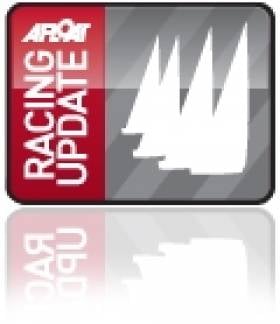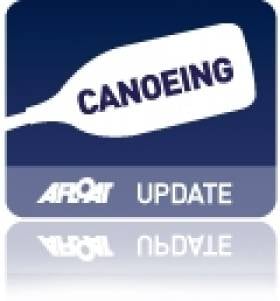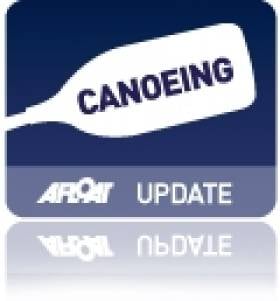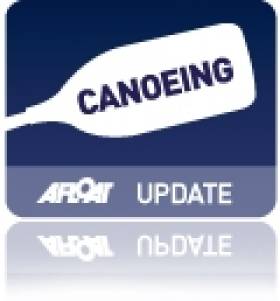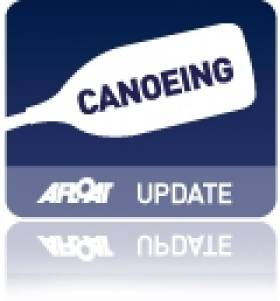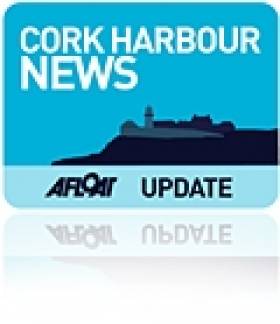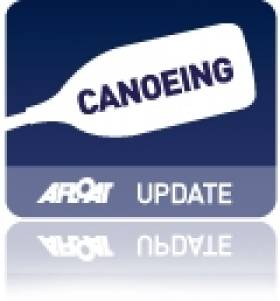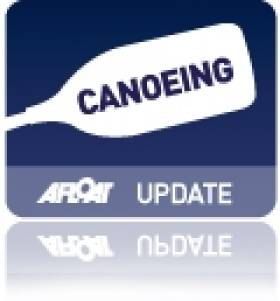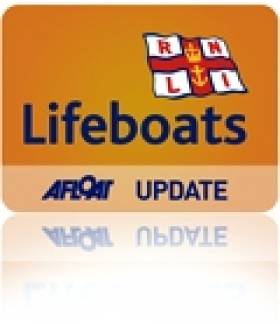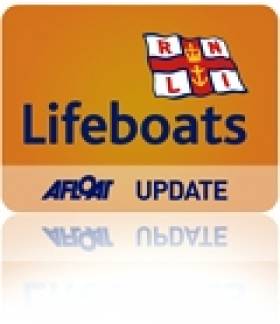Displaying items by tag: kayak
Racing Round up: Dun Laoghaire Regatta, ISAF Youths, Optimists, Paralympic, RORC, WIORA, Quarter Ton, Kiteboarding.
In offshore news, the Transatlantic Race 2011 Nears a Finish, and RORC yachts that headed West did best in the St Malo from Cowes race. Ireland's entry in the Tall Ships race, Celtic Mist, is safely in Scotland. WIORA starts this week in Clifden, thirty boats are expected.
Two top Cork performers are in Cowes for this week's Quarter Ton Cup.
In other boating news, rower Siobhan McCrohan won bronze at the World Rowing Champs in Lucerne, Kiteboarding debuted in Dun Laoghaire. There were Medals for Irish Kayakers at Athens Special Olympics.
And finally after a Elaine 'Shooter' Alexander is set for hero's welcome this week as she becomes the first woman from Northern Ireland to circumnavigate the island of Ireland.
All on our home page this morning, thanks for your interest in Irish Sailing and Boating.
Shooter Nears the Finish Line in Solo Kayak Challenge
Elaine 'Shooter' Alexander is set for hero’s welcome this week as she becomes the first woman from Northern Ireland to circumnavigate the island of Ireland by kayak.
The solo paddler is expected to reach the finish line at County Antrim Yacht Club on Wednesday after her 70-plus-day test of endurance.
Shooter began her epic 1,000-mile voyage on 3 May, facing a tough challenge navigating a coastline of cliffs and headlands, strong tides and brutal weather. She has been storm-bound for a total of 21 days, often only with a small tent for shelter.
When asked what home comfort she was most looking forward to, she simply replied: "A proper toilet and some clean clothes."
Shooter embarked on the challenge to raise funds for SHARE, a charity providing outdoor activity programmes that promote the inclusion of disabled and non-disabled people.
“I expected and had trained for the physical challenge but I don’t think you can ever prepare mentally," she commented.
"It has been a real struggle coping with the repetition of paddling, getting changed into wet clothes and packing up a wet tent every day. Especially on the windy days it has been hard just to push on that extra few miles each day.”
But connecting with fans and supporters through social media made a big difference.
“The Facebook page has really been a lifeline," she said. "There is nothing more motivating than coming off the water after a tough day to read so many supportive and funny comments from well wishers."
See below for a map showing Shooter's live position as she edges closer to the finish line.
UK Canoeing and Kayaking Stats Published
The UK's Maritime and Coastguard Agency (MCA) has published its annual canoeing and kayaking report for 2010.
Among 456 incidents involving canoes or kayaks across the UK, which include nine fatalities, many were due to people underestimating weather and tidal conditions.
The report highlighted that many canoe and kayak owners in Britain do not wear essential safety kit such as buoyancy suits or lifejackets, do not include contact details in their craft, and are not a part of the CG66 small boat safety scheme which enables the coastguard to easily identify them.
There have also been increased reports of kayakers getting into difficulty which turn out to be kayakers fishing offshore. The MCA urges any kayakers doing so to contact the coastguard to avoid wasted searches.
The report is available to read and download HERE.
New Doco on Record-Breaking Kayak Voyage Round Ireland
As Elaine 'Shooter' Alexander continues her challenge to be the first woman to circumnavigate Ireland solo by kayak, news comes of a documetary on another recent kayak voyage.
British adventurers Jeff Allen and Harry Whelan recently completed their own circumnavigation of Ireland, breaking the previous record by eight days.
The duo's exploits were captured by filmmaker Vaughan Roberts for 'Into the Wind', which documents their epic 25-day voyage. A trailer for the new film can be seen here:
Shooter Hits Tramore Three Weeks Into Kayak Challenge
Elaine 'Shooter' Alexander has now reached Tramore on the south-east coast in her effort to circumavigate the island of Ireland by kayak.
Now three weeks into her solo voyage to raise funds for Share, which works for the inclusion of disabled people in water-based and other activities, Shooter is edging ever closer to the half-way point of her 1,000-mile route.
See below for a map of Shooter's current position.
Ocean to City, Cork Harbour's annual maritime festival, takes place this year from 3-12 June.
The yearly celebration of Cork’s maritime history and its unique harbour begins on Friday 3 June when members of the public can voyage through the city by kayak, enjoy the thrill of a sea safari trip around Cork Harbour or follow TG4’s Padraig Ó Duinnín as he presents a historical walking tour and talk on rowing in Cork.
The highlight of the festival, An Rás Mór, takes place on Saturday 4 June and will see boats of all sizes row 15 nautical miles from Crosshaven via Cork Harbour, Monkstown and Blackrock before finishing at the boardwalk in Lapps Quay in Cork.
Around 400 Irish and International rowers will compete in a diverse range of vessels including dragon boats, kayaks, currachs, Celtic long boats, Cornish pilot gigs and Irish coastal rowing boats.
Sunday 5 June will see a special 10km kayak race through the city centre. The Irish Naval Service flagship LE Orla will also offer free public tours, while Meitheal Mara will host a guided voyage around the island of Cork by a variety of small craft.
To mark the Cork Harbour School and Heritage Trails Weekend from from 9-11 June, a series of events highlighting the attractions of Cork Harbour, both water and land based, will take place.
Activities include a summer school on the theme of 'recreation in a working port', which will be held in the Port of Cork on Friday 10 June and opened by Minister for the Marine Simon Coveney.
For more details visit www.oceantocity.com.
Shooter Passes Dublin on Solo Kayak Challenge
laine 'Shooter' Alexander has already passed Dublin in her challenge to circumnavigate Ireland by kayak.
Just 10 days into her solo voyage to raise funds for charity and Elaine has already reached Greystones in Co Wicklow.
But she still has a long way to go to complete the 1,000-mile route battling tides, headlands, cliffs and unpredicatable weather.
See below for a map showing Shooter's current position.
Irish Solo Circumnavigation by Kayak Approaches Dublin
Elaine 'Shooter' Alexander's epic challenge to become the first woman from Northern Ireland to circumnavigate Ireland by kayak is approaching Dublin's coastline.
The challenge will involve a solo voyage of 1000 miles battling tides, headlands, cliffs, not to mention unpredictable weather.
Elaine is just one week into her challenge having taken on a constant barrage of strong head winds en route to Dublin. She is currently just north of Drogheda and weather pending hopes to be in North Dublin (Skerries, Howth) tomorrow, passing Dublin Bay Friday, and South Dublin (Bray and Greystones) Saturday.
She is camping on route and would really appreciate somewhere to shower, store her boat etc close to the sea. You can see exactly where she is by scrolling down this post.
11 Kayakers Rescued by Portrush Lifeboat
The callers stated that they could see a group of twelve kayakers in difficulty off Portballintrae, Causeway Coast, Northern Ireland.
Belfast Coastguard called out the Coleraine Coastguard Rescue Team and requested the launch of the Portrush RNLI lifeboats.
On arrival the Coleraine Coastguard Rescue team kept the kayakers under observation and directed the Portrush RNLI inshore lifeboat to the Kayakers. It was quickly established some of the group had become exhausted and suffering from sea sickness. Eleven of the group where transferred onto the large all weather Portrush Lifeboat whilst the Inshore Lifeboat escorted the one remaining kayaker back to Portballintrae Harbour.
The Portrush Lifeboat then transferred the eleven rescued kayakers who were mainly teenagers to the safety of Portrush Harbour.
Luckily none of the group required any medical attention.
Portrush lifeboat station adds:
Weather conditions were blustery and there was quite a swell off the coast. There was a North West wind coupled with a strong ebb tide. The tide was flowing against the wind, making conditions for the kayakers extremely difficult to return to shore. The Inshore Lifeboat (ILB) was launched first but it became clear the All-weather Lifeboat (ALB) was going to be needed to assist with the recovery of the party.
The ILB recovered 3 kayakers and returned them to Portballintrae. The ALB recovered the rest of the party and took them to Portrush Harbour.
The kayakers are safe and well, apart from suffering chronic sea sickness
Robin Cardwell Lifeboat Operations Manager said
'The fast response of the volunteer RNLI Lifeboat Crews from Portrush Station undoubtedly saved the lives of these kayakers. The sea and wind conditions made it virtually impossible for them to return to shore. Without the fast response of the crews at Portrush, this would have had a very different outcome'
Wicklow Lifeboat Crew Race from Christening to Rescue
Both of the station lifeboats was launched and quickly located the kayakers South of Wicklow head , one man was taken on board the inshore lifeboat , he was then transferred onto the all-weather lifeboat and swiftly taken back to Wicklow harbour where he was met by a waiting ambulance crew and transferred to hospital for observation. The all-weather lifeboat then returned and picked up the other two men from the inshore lifeboat, they were landed safely in Wicklow harbour at 2-45pm and both lifeboats were stood down, allowing Coxswain Nick Keogh and David O Leary to re-join their families and resume the christening celebrations.
Lifeboat Operations manager Des Davitt said the 3 kayakers were well prepared and equipped with flares and vhf radio , 'they used their mobile marine VHF radio to contact the coast guard and ask for assistance, It meant our crew were able to respond quickly and bring them to safety'.
Related Safety posts
RNLI Lifeboats in Ireland
Safety News
Rescue News from RNLI Lifeboats in Ireland
Coast Guard News from Ireland
Water Safety News from Ireland
Marine Casualty Investigation Board News
Marine Warnings



























